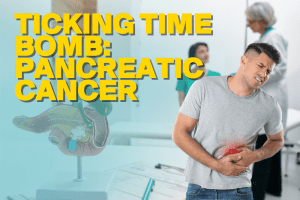Hollywood’s legendary actor, Sam Neill, known for his iconic roles in Jurassic Park and The Piano, has recently been diagnosed with non-Hodgkin’s lymphoma.
Non-Hodgkin’s lymphoma (NHL) is a type of cancer that originates in the lymphatic system, which is part of the body’s immune system. It affects the white blood cells called lymphocytes, causing them to grow and multiply uncontrollably. There are several subtypes of NHL, with the most common ones being diffuse large B-cell lymphoma and follicular lymphoma.
Symptoms and Diagnosis of Non-Hodgkin’s Lymphoma
The symptoms of NHL can vary widely depending on the type and stage of the disease. Common signs and symptoms of NHL include swollen lymph nodes, which may be painless. Other typical symptoms include:
- Fatigue
- Fever
- Night sweats
- Unexplained weight loss
- Shortness of breath
- Coughing
- Chest or abdominal pain
- Gastrointestinal problems.
In some cases, NHL can cause skin lesions or other visible abnormalities. It’s worth noting that the symptoms of NHL can be similar to those of many other conditions, making it important to consult a doctor for a proper diagnosis. To diagnose NHL, a doctor will typically begin by conducting a physical exam to check for swollen lymph nodes and other signs of the disease. The doctor may also order blood tests to check for abnormalities in white blood cells, as well as imaging tests, such as CT scans or PET scans, to look for signs of lymphoma in the body.
If these tests suggest that lymphoma may be present, the doctor will likely perform a biopsy, in which a small sample of tissue is taken from a lymph node or other affected area and examined under a microscope. The biopsy can help determine the type of lymphoma present, which is crucial for determining the appropriate treatment.
The Rising Incidence of Non-Hodgkin’s Lymphoma
Recent studies have shown that the incidence of NHL in Asia is on the rise. According to the Asian Lymphoma Study Group, the number of new cases in Asia has been steadily increasing over the past few decades.
Factors contributing to this increase include aging populations, lifestyle changes, and environmental factors. In countries like China, Japan, and South Korea, NHL has become one of the most common cancers, particularly among the elderly.
Treatment Options for Non-Hodgkin’s Lymphoma
The treatment for NHL largely depends on the stage and subtype of the disease. Common treatment options include chemotherapy, radiation therapy, immunotherapy, and targeted therapy. In some cases, stem cell transplantation may also be recommended.
Chemotherapy: This is the use of drugs to kill cancer cells or stop them from growing. It is typically administered in cycles, allowing the body to recover between treatments. Chemotherapy is often combined with other treatments for better results.
Radiation therapy: This treatment uses high-energy X-rays or other types of radiation to destroy cancer cells. It is frequently used in combination with chemotherapy, particularly for patients with early-stage NHL.
Immunotherapy: This approach harnesses the body’s immune system to fight cancer. Immunotherapy drugs like monoclonal antibodies and checkpoint inhibitors work by targeting specific proteins on cancer cells, enabling the immune system to recognize and attack them.
Targeted therapy: These drugs specifically target cancer cells, causing less harm to normal cells. Examples of targeted therapies for NHL include kinase inhibitors and proteasome inhibitors.
Stem cell transplantation: In some cases, a stem cell transplant may be recommended to replace damaged bone marrow with healthy stem cells. This procedure is typically reserved for patients with aggressive or recurrent NHL.
The Importance of Early Detection and Awareness
In light of Sam Neill’s diagnosis, it is essential to raise awareness about NHL and its growing prevalence. Regular check-ups and monitoring for symptoms are crucial for early detection, which significantly improves the chances of successful treatment.
Moreover, understanding the risk factors associated with NHL, such as a family history of the disease, exposure to certain chemicals, or a weakened immune system, can help individuals take preventive measures to reduce their risk.













